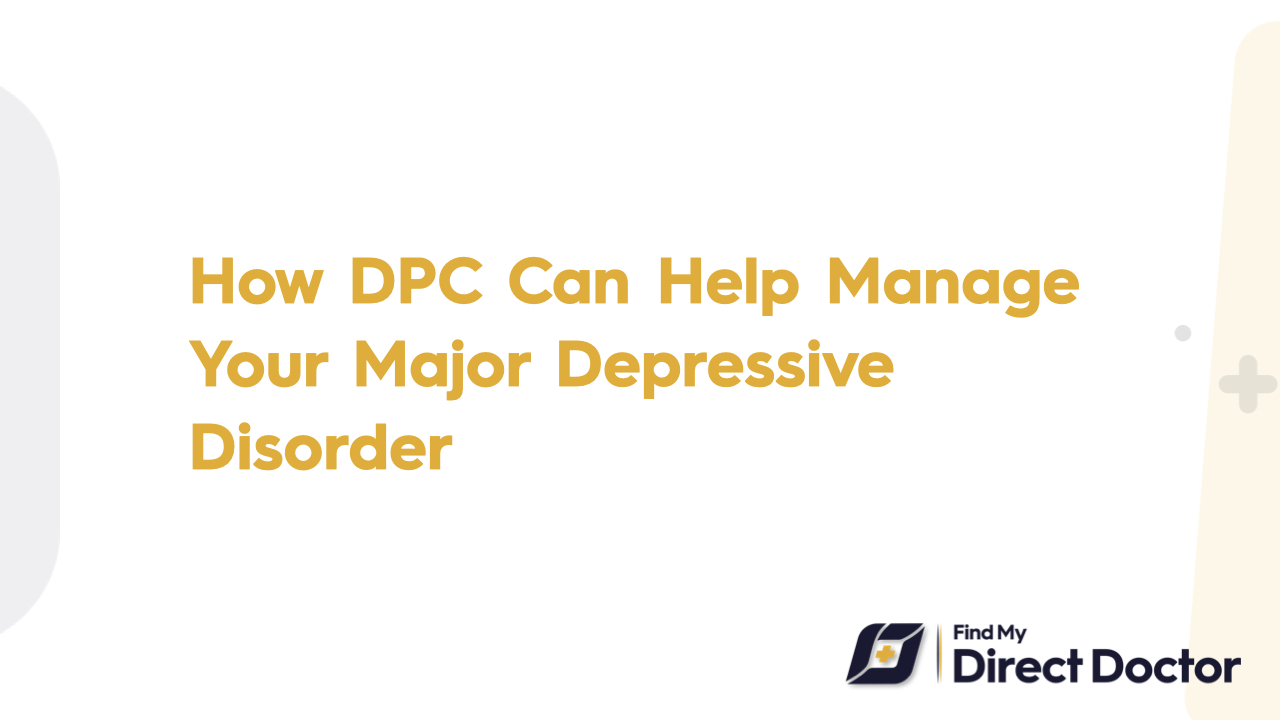



Clinical depression, another name for major depressive disorder (MDD), is a mental illness marked by a lack of interest or enjoyment in once-enjoyed activities as well as enduring emotions of melancholy and pessimism. It can seriously harm a person's relationships, career, and general well-being in addition to affecting their capacity to function in day-to-day life. Although the precise origin of MDD is unknown, a mix of biochemical, psychological, environmental, and genetic variables are thought to be involved.

Though they might differ from person to person, major depressive disorder symptoms usually include thoughts of suicide or death, exhaustion, changes in appetite, difficulties focusing, feelings of guilt or worthlessness, and changes in sleep patterns (either excessive sleeping or sleeplessness). For these symptoms to satisfy the MDD diagnosis criteria, they must be present for a minimum of two weeks. Aches and pains with no apparent cause are among the physical symptoms that MDD can occasionally induce.
With regular, individualized care from their primary care physician, Direct Primary Care (DPC) provides the perfect setting for managing major depressive disorder. Patients in DPC have greater access to their medical professionals, which is crucial for those who are depressed since they may routinely talk about their symptoms and any changes in their mental health. Early detection of any mood swings or deterioration of symptoms is made possible by this regular communication.
Additionally, DPC providers can give customized treatment alternatives for controlling MDD, such as lifestyle changes, psychotherapy, and necessary referrals to therapists or psychiatrists. A thorough treatment plan that meets the patient's needs can also be ensured by DPC practices, which frequently place an emphasis on a holistic approach to health. This allows clinicians to collaborate with patients to address underlying causes of depression, such as chronic stress, poor nutrition, or sleep issues.
The continuity of care that Direct Primary Care offers patients with Major Depressive Disorder is one of its main advantages. Patients can check in with their healthcare practitioner on a frequent basis with DPC, which enables more rapid treatment plan modifications. Effectively controlling depression requires prompt attention to any changes in symptoms, which is ensured by this regular interaction.
Furthermore, a more individualized approach to treatment is made possible by DPC. Compared to standard practices, DPC offices typically have fewer patients per doctor, which allows the provider to spend more time getting to know the patient's family dynamics, mental health history, and any other circumstances that may be influencing their condition. More focused and efficient care results from this tailored attention. In order to better coordinate a treatment plan that meets the patient's medical, emotional, and psychological needs, DPC practitioners can also work in conjunction with mental health specialists.
With an emphasis on each patient's particular needs, managing major depressive disorder in a Direct Primary Care system is extremely individualized. In close collaboration with patients, DPC providers create a treatment plan that incorporates behavioral, psychological, and medicinal interventions. This could entail suggesting counseling, modifying prescriptions, promoting consistent exercise, and offering guidance on stress reduction and sleep hygiene.
As the patient's condition changes, the treatment plan can be continuously modified thanks to DPC's emphasis on individualized care. Frequent follow-ups guarantee that any alterations in symptoms or the efficacy of treatment are swiftly addressed. DPC provides a comprehensive, ongoing care strategy that helps patients manage Major Depressive Disorder at every step of their recovery process, whether it means changing medication, adding new coping mechanisms, or sending them to a mental health specialist.
Previous Post